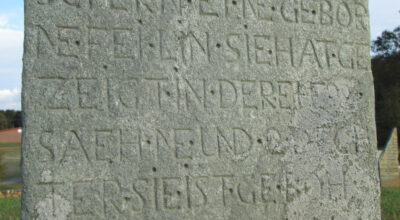Which is better — eating before or after workout?
Published 12:00 am Monday, September 22, 2014
After the overtraining column last week, I received a lot of good feedback. Someone suggested doing a column on whether it is better to eat before or after your run or work out. To eat or not to eat — that is the question.
Over the years, I have seen study after study on the issue. Some prove it is better to eat first, some say eating after is best. One study mentions that more fat is burned if you don’t eat breakfast, but another study says just the opposite. Personally, I have to eat before I exercise. I can’t function, let alone think, when I don’t eat. And to top that off, I am not very pleasant to be around when I am hungry.
The latest study was done to compare differences in fat metabolism with people who ate breakfast and people who didn’t. They also checked to see if it affected oxygen consumption. Both groups did the same workout, which was a 36-minute run on the treadmill. The ones who ate breakfast had a much better workout compared to the ones who didn’t eat first.
However, what was very interesting is that 12 hours after the workout, VO2 levels were still higher in the group that ate breakfast, and the respiratory-exchange ratio indicated more fat utilization. Even 24 hours after the exercise, the difference was still significant. So eating breakfast makes you perform better and burn more fat. It surely works for me! So the advice after the study is to eat a small meal before exercise. My advice it to eat at least two hours before your workout when your breakfast is more substantial (a big breakfast or meal). Light snacks can be eaten shortly before your workout. Light or non-fat yogurts can really do the trick. Just because you eat breakfast does not mean you can skip a meal, which I know can be very hard. If eating smaller meals throughout the day works for you, watch your calories closely so you don’t add a lot of extra calories to your diet.
When you are looking at which snacks to pick, watch the calories, sugar, fat and sodium per serving. They can really sneak up on you.
These are my favorite meal snacks:
• Belvita “breakfast” ( I use it as a snack) — 230 calories
• Activia yogurt — 110 calories
• Nonfat greek yogurt with fruit (120 calories)
• Apples, medium — 93 calories
• Bananas, medium — 105 calories
• Grapes — (one cup, 104 calories
• Oranges, medium — 62 calories
• Kashi granola bar, honey almond flax — 140 calories
• Nature Valley roasted nut crunch, peanut butter — 190 calories
• Fit &Active protein meal bar — 180 calories
Do I eat “forbidden” foods? Absolutely. But I don’t go crazy. I like to limit the intake of foods that do not nourish my body. And call me crazy, but I don’t wait for hunger to eat my meal. When I am “hungry” I will eat anything in sight! Most of the time I plan my food intake/meals for the day and always eat breakfast.
Ester H. Marsh is health and fitness director for the JF Hurley Family YMCA.


